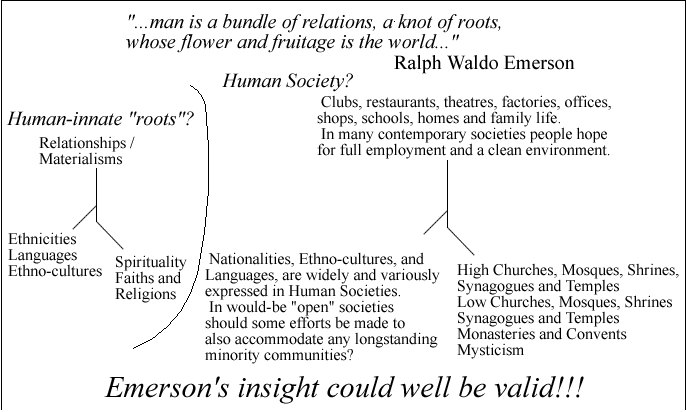Index of Social Psychology pages

"Mankind are so much the same, in all times and places, that history informs us of nothing new or strange in this particular. Its chief use is only to discover the constant
and universal principles of human nature."
David Hume
David Hume
"Whatever concept one may hold, from a metaphysical point of view, concerning the freedom of the will, certainly its appearances,
which are human actions, like every other natural event, are determined by universal laws. However obscure their causes, history,
which is concerned with narrating these appearances, permits us to hope that if we attend to the play of freedom of the human will
in the large, we may be able to discern a regular movement in it, and that what seems complex and chaotic in the single individual
may be seen from the standpoint of the human race as a whole to be a steady and progressive though slow evolution of its original endowment."
Immanuel Kant
Idea for a Universal History from a Cosmopolitan Point of View (1784)
Immanuel Kant
Idea for a Universal History from a Cosmopolitan Point of View (1784)
Or to quote Emerson, from his essay ~ History more fully:-
"In old Rome the public roads beginning at the Forum proceeded north, south, east, west, to the centre of every province of the empire, making each market-town of Persia, Spain, and Britain pervious to the soldiers of the capital: so out of the human heart go, as it were, highways to the heart of every object in nature, to reduce it under the dominion of man. A man is a bundle of relations, a knot of roots, whose flower and fruitage is the world. His faculties refer to natures out of him, and predict the world he is to inhabit, as the fins of the fish foreshow that water exists, or the wings of an eagle in the egg presuppose air. He cannot live without a world."
"In old Rome the public roads beginning at the Forum proceeded north, south, east, west, to the centre of every province of the empire, making each market-town of Persia, Spain, and Britain pervious to the soldiers of the capital: so out of the human heart go, as it were, highways to the heart of every object in nature, to reduce it under the dominion of man. A man is a bundle of relations, a knot of roots, whose flower and fruitage is the world. His faculties refer to natures out of him, and predict the world he is to inhabit, as the fins of the fish foreshow that water exists, or the wings of an eagle in the egg presuppose air. He cannot live without a world."

"There is one mind common to all individual men....
....Of the works of this mind history is the record. Man is explicable by nothing less than all his history. All the facts of history pre-exist as laws. Each law in turn is made by circumstances predominant. The creation of a thousand forests is in one acorn, and Egypt, Greece, Rome, Gaul, Britain, America, lie folded already in the first man. Epoch after epoch, camp, kingdom, empire, republic, democracy, are merely the application of this manifold spirit to the manifold world."
From Ralph Waldo Emerson's Essay ~ History
....Of the works of this mind history is the record. Man is explicable by nothing less than all his history. All the facts of history pre-exist as laws. Each law in turn is made by circumstances predominant. The creation of a thousand forests is in one acorn, and Egypt, Greece, Rome, Gaul, Britain, America, lie folded already in the first man. Epoch after epoch, camp, kingdom, empire, republic, democracy, are merely the application of this manifold spirit to the manifold world."
From Ralph Waldo Emerson's Essay ~ History

It is widely known that Plato, pupil of and close friend to Socrates, accepted that Human Beings have a " Tripartite Soul " where individual Human Psychology is composed of three aspects - Wisdom-Rationality, Spirited-Will and Appetite-Desire.

 We have prepared some fairly detailed, but hopefully "truth-full, informative, and ~ given the extent of the subject ~ brief", pages about
a most deeply revealing episode in European History!!!
We have prepared some fairly detailed, but hopefully "truth-full, informative, and ~ given the extent of the subject ~ brief", pages about
a most deeply revealing episode in European History!!!
The events of 1848 display the existence and latent power of many societal pressures which have subsequently fully contributed to the "Emergence of Modernity" in the Western world.
Prior to 1848 the existence of these societal pressures was often unsuspected or ignored, - their latent power was certainly vastly unappreciated.

